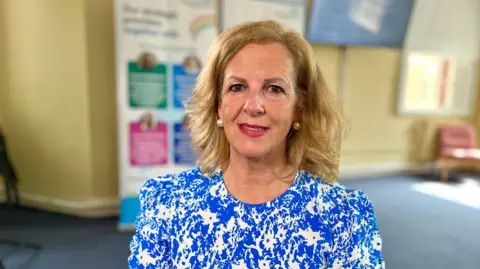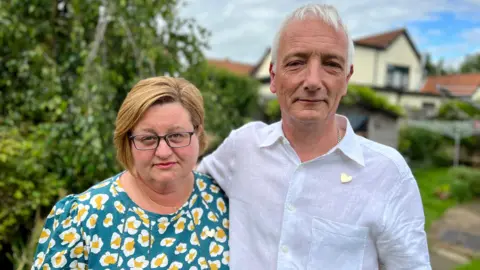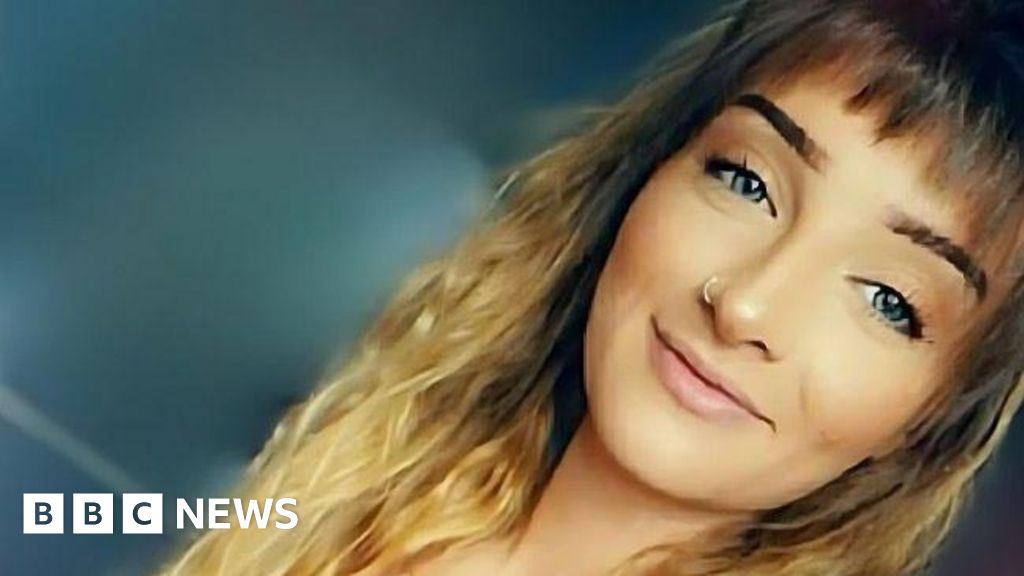By Matt Precey, BBC News, Norfolk • Nikki Fox, Health correspondent, BBC News, Norfolk
 Woolnough family
Woolnough familyAn NHS mental health trust said it had finally established how thousands of its patients died after losing track of the numbers.
The Norfolk and Suffolk Foundation Trust (NSFT) analysed 12,000 deaths over a four-year period.
About half of those patients were under NSFT’s care in the last six months of their lives, with 418 deaths being categorised as “unnatural and unexpected”.
The chief executive said there was still a great deal of work to do to improve services. The parents of a woman who died under the trust’s care described the accountability as “extremely important”.
Last year, auditing firm Grant Thornton examined the way NSFT recorded and reported mortality data.
It found the cause of death had not been established in more than three quarters of cases, with discrepancies between internal systems as well as board reports.
Hundreds of NHS staff were tasked with reviewing thousands of records under the leadership of Caroline Donovan, following her appointment last November.
NSFT said it was the first time an NHS mental health trust had produced and published a report like this.
 Martin Giles/BBC
Martin Giles/BBCThe new analysis screened 12,503 deaths from 2019 to 2023, and found:
- 6,385 patients had been in NSFT’s care during the last six months of their life
- Of these, 92% died from natural causes
- 7% were deemed to be “unexpected and unnatural” deaths
- For 76 individuals (1%), the cause remained unknown.
The trust defined an “unexpected and unnatural” death as being where the patient “may have decided to take their own life and their death was intentional”.
Ms Donovan said: “We now understand every single one of those deaths bar one per cent”.
She added: “We can use that information to learn and improve. We have already started to and that has been recognised by the Care Quality Commission (CQC). We have got a lot more to do”.
The CQC upgraded the trust’s overall rating from “inadequate” to “requires improvement” last year.
It remains in the NHS Recovery Support Programme, formerly known as Special Measures.
Financial cuts
Ms Donovan also confirmed the trust was facing having to make savings of £17m this financial year.
She said this was part of a change programme and that the quality of services would not be affected, with additional staff being recruited.
But the Norfolk & Suffolk Mental Health Crisis Campaign said: “Without an injection of funding and additional beds, deaths will continue.”
The group added: “NSFT communicate their work as righting the wrongs of the past, however, the wrongs have been largely preventable and the bereaved and the public are still concerned about the absence of accountability for previous harms.
“We continue to call for a statutory public inquiry.”
 Martin Giles/BBC
Martin Giles/BBCEllie Woolnough, from Ipswich, died in hospital in July 2022 after attempting to take her own life eight days previously while under NSFT care.
Her parents, Lisa and James, described the trust finally accounting for the deaths of its patients as “extremely important”.
Mrs Woolnough added: “You need to know what is working and what is not working. You know where you are doing well, so you can pursue that, or you know what’s not working well and then you can change it.”
Mr Woolnough highlighted how the trust had failed to heed concerns in Prevention of Future Deaths reports compiled by coroners following patient inquests.
“You are only ever sorry about a mistake if you do something to change that mistake,” his wife said.


